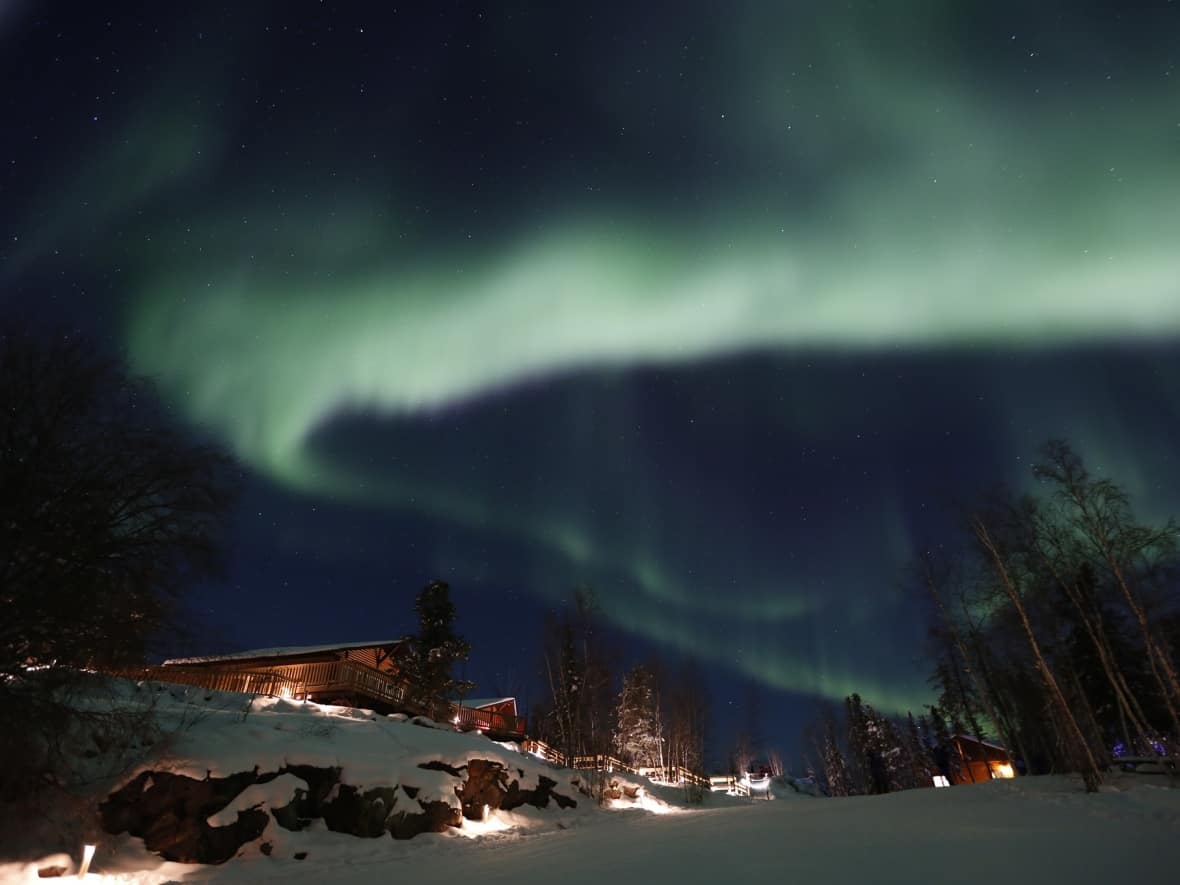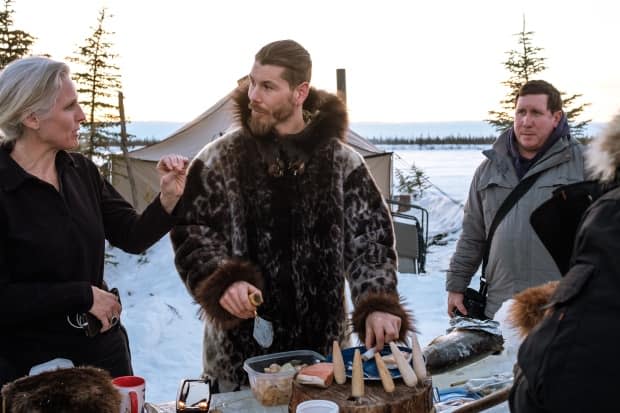Overcast skies and a lack of flights: N.W.T. tour operators grind through a tough year

After two years of travel restrictions, tour operators in the N.W.T. haven't seen the level of visitors return to what they were before the COVID-19 pandemic, according to several tour operators.
Many are happy to have the numbers they do, but say some unfortunate obstacles cropped up this year. This includes the lack of flights, the rising cost of travel and a month of overcast skies in January, a popular aurora viewing time in Yellowknife.
"Everyone who's here is here to see aurora, and if they see aurora they are leaving happy," said Takaya Kenjo, a guide with Aurora Village.
Some relief is on the way, though, as sunny weather is in the forecast for the next week, according to Environment Canada.

Many operators say they're welcoming anywhere between 20 to 50 per cent of the visitors they had pre-COVID.
Donna Lee Demarcke is the CEO of Northwest Territories Tourism.
She said they'd expected the numbers to be low this year and there's a variety of causes, especially the fact travel hasn't returned to what it was pre-COVID globally. There are also rising costs and labour shortages.
"The international markets are still slow to return and some of them aren't even fully open to travel just yet," Demarcke said.
"And so there's that and then also everything that's going on with the airline industry."

Amit Tripathi, the director of Yellowknife Vacations, said his guests have mentioned air travel as well.
"The availability of the flights has been an issue," he said. "One of the major air carriers has took off from from landing to Yellowknife and it reduces the number of the flights."
Air Canada cancelled a direct flight from Yellowknife to Edmonton and Calgary this past fall.
Demarcke said her organization has been discussing this with airlines and they have some solutions in the works.
This includes Canadian North offering a direct Calgary to Yellowknife flight, starting Feb. 14.
Air Canada also said in an email it will be bringing back the direct Edmonton flight in May and offering flights twice daily to Vancouver in the summer.
'So good to see people back'
Jo-Ann Martin is the owner of Bullocks Bistro in Yellowknife, a popular tourist destination.
She said although the number of restaurant customers aren't what they were, it's still "day and night" compared to what operations were like while there were travel restrictions in place.
"We lost pretty much 70 per cent of our sales during the pandemic," Martin said. "It's great, it's so good to see the people back and to have a steady business."

Kylik Kisoun Taylor, who runs Tundra North Tours Ltd. in Inuvik, said his community has also not seen a return to pre-COVID tourist numbers.
He said part of this is the region and the issues it's dealing with.
"I think it's just a matter of things recovering, but also our region recovering. A lot of wholesalers, a lot of bigger companies that sell our tours are having a hard time because of the amenities that just aren't available. You bring up some clients but then they don't have a place to eat," he said, a reference to the recent closure of some restaurants in the community.
"It's kind of a basic human need," he said.
Kisoun Taylor is Indigenous and runs cultural programming as part of his tour.
He said his business took a hit during the pandemic, which will take years to recover from.
He said his company was forced to cut overhead costs, which involved moving the entire operation out on the land. Although it's tough times for the tourism industry, he is appreciative of what he has and what he is doing.
"At the end of the day, I wake up in the morning and I feed my dogs and I chop some wood and I live out on the land and I drink the cleanest water and I eat the best food," Kisoun Taylor said. "I'm happy, I'm quite content with how things are going."


